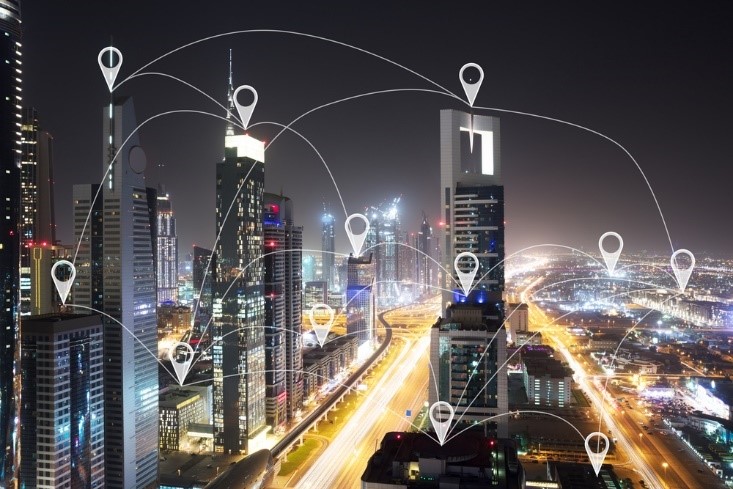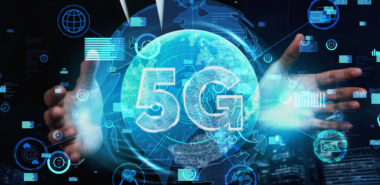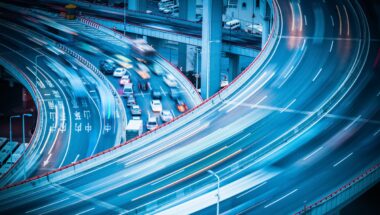
Smart cities may seem like a futuristic concept to some people, but residents and tourists in the Middle East are already witnessing its benefits first-hand as each day the region is one step closer to becoming a home to multiple, fully-fledged smart cities.
The ICT sector in the Middle East and Africa is gearing up for heavy digital growth over the next few years and Frost & Sullivan’s latest report shows that four billion networked devices are expected to be in place in the MENA region by 2020. Within this region, the GCC (Gulf Cooperation Council) and Dubai in particular, are now walking into a technology driven future, and the Internet of Things (IoT) is set to make an even greater impact on society.
Under the Dubai Smart City and Dubai Plan 2021, Dubai’s aim is to become the smartest, best connected and happiest city in the world across eight key pillars – telecoms, tourism, utilities, education, real estate, public safety, healthcare and transportation – all of which are based on or facilitated by the IoT. There are several different ideas of how IoT will shape the future of Dubai and other cities in the region, but one aspect of city life that appears in almost every smart city vision is mobility.
With population growth and increased urbanization expectated in the coming years, the concept of mega cities is driving city planners and government agencies to rethink their plans and the investments that will be required for existing infrastructure. Smart Cities will require big data and Artificial Intelligence to use city infrastructure in a smart manner.
With increased urbanization, commuting distances will increase and autonomous vehicles with ride sharing services will become a necessity. Self-driving cars are only one example of the smart transport that will be required.
For the utility sector, smart metering solutions will ensure more efficient consumption and optimum allocation reducing the load on the grid.
All of these solutions require data and 5G – the technology that is essentially the underlying glue that will ensure the ability to scale the Internet of Things to provide data to enable smart services for the city.
The UAE is driven to becoming the happiest country on earth. That accolade is measured by the ease with which the citizens will have access to public infrastructure and services. With 5G in place, this allows greater cost efficiencies in city planning. In addition, the UAE’s vision in terms of a consolidated national agenda and a legal framework provides the ability to easily formulate public-private-partnerships (PPP). This will also allow the UAE government to offer private enterprises as well as government entities a quick route to market and readily available digital transformation strategies.
Genuine digital disruption in smart cities is driven by many different underlying technologies, which come together to deliver an enabling ecosystem. Other technologies included are Artificial Intelligence, Cloud Storage, BIG Data, Cyber Security and ID Verification (as well as many more).
The key to digital disruption is data, specifically three main components:
- Storing the data
- Analysing the Data with Artificial Intelligence
- Monetizing the Data
When harnessed properly, data can help trigger a digital transformation by shifting our focus from products to public services.
As a result, all ecosystem partners: governments, enterprises, software providers, device manufactures, energy providers, and the network service providers must do their part and integrate solutions that abide by four core security objectives:
- Availability: Without actionable, real-time, and reliable access to data, the smart city can’t thrive. How data is collected, distilled and shared is critical, and security solutions must avoid negative effects on availability.
- Integrity: Smart cities depend on reliable and accurate data. Measures must be taken to ensure that data is accurate and free from manipulation.
- Confidentiality: Some of the data collected, stored and analyzed will include sensitive details about consumers themselves. Steps must be taken to prevent unauthorized disclosure of sensitive information.
- Accountability: Users of a system must be responsible for their actions. Their interactions with sensitive systems should be logged and associated with a specific user. These logs should be difficult to forge and have strong integrity protection.
Of course, to achieve these core security objectives, strong authentication and ID management solutions need to be integrated into the ecosystem to ensure that data is shared only with authorized parties.
Innovation and technology is challenging businesses today, with more and more fintechs and disruptive environments, small business are becoming more aggressive and agile. To navigate this evolving climate, we’ve taken a holistic view on the different building blocks, such as software, hardware and data, which gel together to build robust IoT ecosystems. In order to realize the benefits of IoT in a digitally disruptive environment, there are three critical components for the ecosystem to thrive: reliable connectivity, reliable security and an agile monetization framework.
And to ensure this vision becomes reality, we must make sure data security is not an afterthought in the planning of smart cities but a key element that allows smart services to make people’s lives easier and happier through trustworthy, secure technology.


